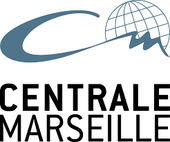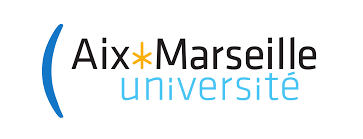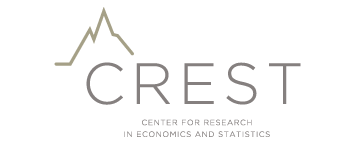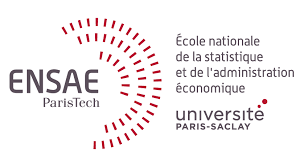Meeting in Mathematical Statistics
Rencontres de Statistique Mathématique
16 – 20 December 2019
Comité scientifique & Comité d’organisation
Cristina Butucea (CREST, ENSAE, Université Paris-Est Marne-la-Vallée)
Christophe Pouet (Ecole Centrale de Marseille)
Vladimir Spokoiny (Humboldt University of Berlin)
|
The classical theory of statistical models (experiments) has been extended to the asymptotic equivalence paradigm, allowing to classify and relate infinite or high-dimensional problems which are most often ill-posed.
Such statistical concepts are also integrated in the emerging field of quan- tum statistics, which is developing due to fast technological progress in quan- tum engineering. The analysis of quantum statistical models is directed to- wards a non-commutative statistical decision theory with connections to operator algebra, quantum information and quantum probability (see current trimester at the Institute Henri Poincaré : https ://sites.google.com/site/analysisqit2017/ As any fast evolving area, it already benefitted from the non parametric and the high-dimensional up-to-date methods in statistics. However, more invol- ved physical concepts (like entanglement) are not popular in the mathematical- statistical world. Similarly, the quantum dynamical systems are much used in quantum engineering and inference in such setups is at its very beginning. Our conference aims at bringing together new topics from quantum physics and the most recent research in high-dimensional statistics, learning, stochastic processes, for a closer exchange and opening on future cooperations. |
La théorie classique d’expériences statistiques a été étendue au paradigme de l’équivalence asymptotique, nous permettant de classifier et mettre en lien des problèmes infini-dimensionnels qui sont mal posés le plus souvent.
De tels concepts statistiques sont aussi intégrés dans le domaine e émergent de la statistique quantique qui se développe très rapidement due au progrès technologiques de l’ingénieurie quantique. L’analyse des modèles statistiques quantiques se dirige vers une théorie de la décision non-commutative en lien avec l’algèbre des opérateurs, la théorie de l’information quantique et les probabilités quantiques (voir le trimestre à l’Institut Henri Poincaré: https ://sites.google.com/site/analysisqit2017/ Ce domaine a déjà bénéficié des dernières méthodes statistiques non paramétriques et en grande dimension. Cependant, de nombreux concepts physiques (e.g. l’intrication) ne sont pas populaires en statistique. De même, les systèmes dynamiques quantiques sont très utilisés en pratique, mais l’inférence statistique n’en est qu’à son début. Notre conférence a pour but de rassembler de nouveaux sujets de physique quantique et les plus récents développements en statistique, apprentissage, statistique des processus, pour des échanges et futures coopérations. |
Andrea Montanari (Stanford University) Wide two-layers neural networks
Nicolas Verzelen (INRA Montpellier)
Talks
Pierre Alquier (RIKEN Center for Advanced Intelligence Project, Japan) A Generalization Bound for Online Variational Inference
Eduard Belitser (VU University Amsterdam) Quantifying uncertainty in variable selection and multiple testing
Pierre Bellec (Rutgers University) On the necessity of degrees-of-freedom adjustment for confidence intervals from debiasing procedures
Thomas Berrett (ENSAE) Optimal separation rates for independence testing via permutation tests
Franz Besold (Weierstrass Institute Berlin) Manifold clustering
Robin Blume-Kohaout (Sandia National Laboratories) Statistical vignettes from the front lines of quantum computing: measuring the performance of quantum computers
Natalia Bochkina (University of Edinburgh) Bernstein-von Mises theorem in Semi-Parametric Bayesian non-regular mixture model
Rui M. Castro (Eindhoven University of Technology) Testing for planted communities in inhomogeneous random graphs
Fabienne Comte (Université Paris Descartes) Nonparametric drift estimation for i.i.d. paths of stochastic differential equations
Arnak Dalalyan (CREST-ENSAE) Huber loss leads to minimax rate optimal robust estimation
Madalin Guta (University of Nottingham) Local asymptotic normality for quantum stochastic processes
Marc Hoffmann (Université Paris-Dauphine) Statistical inference and PDE’s: some results in interacting Mc-Kean-Vlasov particle systems
Richard Kueng (California Institute of Technology) Projected least squares: a numerically cheap quantum tomography procedure with optimal error bounds
Samriddha Lahiry (Cornell University) Sharp and adaptive minimax nonparametric estimation of pure quantum states
Guillaume Lecué (CREST, ENSAE) Robust subgaussian estimation of a mean vector in nearly linear time
Alexey Naumov (Higher School of Economics Russia) Variance reduction for dependent sequences with application to MCMC
Mohamed Ndaoud (CREST-ENSAE) Scaled minimax optimality in high-dimensional linear regression: A non-convex algorithmic regularization approach
Ion Nechita (LPT Toulouse) Compatibility of quantum measurements: some simple necessary criteria
Nikita Puchkin (Higher School of Economics Russia) Structure-adaptive manifold estimation
Markus Reiß (Humboldt University Berlin) Signal detection lower bounds for time-varying covariance matrices
Angelika Rohde (Albert-Ludwigs-University Freiburg) Bootstrapping linear spectral statistics of high-dimensional covariance matrices
Vladimir Spokoiny (WIAS & Humboldt-University Berlin) Bayesian inference for nonlinear inverse problems
Alexandra Suvorikova (Potsdam University) Statistical Optimal Transport
Martin Wahl (Humboldt-University Berlin) Perturbation bounds for structured random operators
Jonathan Weed (New York University) Sample complexity and the central limit theorem for entropic optimal transport







